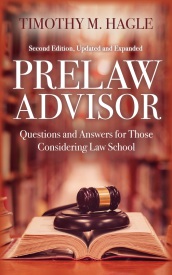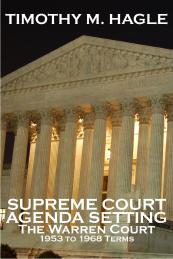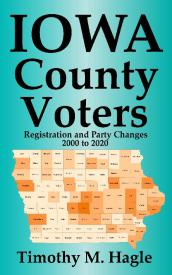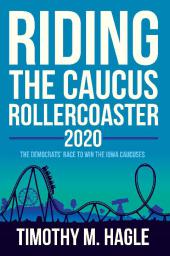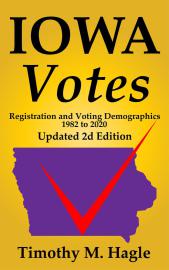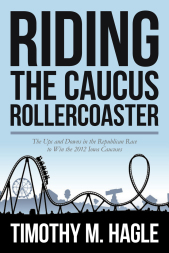
Contact Info
347 Schaeffer Hall
319-335-2348
timothy-hagle@uiowa.edu
Twitter: @ProfHagle
Fall 2024 Office Hours
Tue & Th: 4:45-6:15
Mailing Address
Dept of Political Science
341 Schaeffer Hall
20 E. Washington Street
The University of Iowa
Iowa City, Iowa 52242
News
Posted updated Prelaw FAQ for UI students
New Book, Riding the Caucus Rollercoaster 2024, published in paperback and for Kindle devices.
Posted updates to 12 papers in Iowa Voting Series for 2022 election data
New Book, Supreme Court Agenda Setting: The Warren Court, published for Kindle devices and computers with Kindle reader.
Published updated and expanded edition of Prelaw Advisor in paperback and for Kindle readers
My books
Movies
I'm a big movie fan and I've been thinking about putting together a course on how legal issues are portrayed on film. The list below consists of some of the movies I've been considering for the course as well as others that might be of interest. I'll provide a few comments on why the movie is interesting or worth watching, but I'll leave it to you to click on the link to get a fuller summary of the movie if you are not familiar with it. The list is alphabetical by title (or will be once I start adding items).
I've really been slow about putting this list together, so I'm just going to add a few to get the ball rolling.
. . . And Justice for All: Al Pacino stars as a lawyer in this movie. What makes this movie interesting from a legal perspective is the ethical dilemma Pacino finds himself in when he knows his client is guilty.
The second link is to a double feature DVD with this movie and Absence of Malice.
12 Angry Men: Considered a classic. Henry Fonda leads an all-star cast of 12 strangers thrown together on a jury and asked to decide the fate of a defendant. The movie is more about the group dynamic rather than legal principles, but how jurors interact with each other is a part of the legal system that you only see if you've been on a jury. It's interesting to see how the jurors move from their initial vote to the final result given the conflicting interests of the jurors and the tensions between them.
Absence of Malice: Paul Newman plays the son of mob guy and Sally Field plays the reporter who is trying to dig up dirt on him. The title comes from the legal standard that must be met bysomeone who is a public figure to sue a newspaper for defamation. The scene where the newspaper's lawyer explains how they have protected themselves from a lawsuit is interesting.
The second link below is to a double feature DVD with this movie and . . . And Justice for All.
A Civil Action: John Travolta plays a personal injury lawyer who takes on a case where residents of a town were allegedly injured by pollutants dumped into the ground by two big companies. The movie, based on the nonfiction book, shows how what seemed to be a slam dunk case for the injured ended up a failure, largely due to the overreach by the lawyer. I thought the book was much better than the movie, mainly because it digs deeper in to the legal aspects (which I found interesting, but others may not), but the movie good.
The Paper Chase: This is the fictional story of a midwestern student's first year at Harvard law school. The author of the book the movie was based upon attended Harvard, so he likely drew heavily on his own experiences. I have students in my Lawyers in the American Political System course watch this movie as it provides one take on the stress and difficulty of the first year of law school at an elite university. (Along those lines, the book One L, covers much the same ground.) John Houseman plays Professor Kingsfield. I only had one law professor who came close to being as demanding in the classroom as Kingsfield, but that was enough! Aspects of this movie did not age well (try not to be distracted by the 1970s hair styles!) but the basic challenges of law school remain the same and make the movie worth watching.
